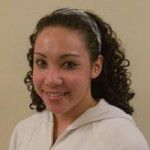A chance to become aware

February 3, 2009
He lost. A crushing 14-2 vote favored his ousting on that late spring day last year. Exacerbating Alex Barton’s loss was the disparagement by his peers, who, according to an article in Florida’s TCPalm, called him “disgusting” and “annoying,” as he stood before them alone, singled out as punishment for disciplinary issues.
Not even the words of Simon Cowell, American Idol’s resident commander of curtness, can compete with those of Barton’s critics – and Cowell is at least four decades their senior. In a deranged interpretation of elimination rounds on reality TV shows, kindergarteners voted 5-year-old Barton, a fellow student in the process of being diagnosed with Asperger’s Syndrome, a high-functioning form of autism, out of their Morningside Elementary classroom at the instruction of their teacher, Wendy Portillo.
File the troubling teacher-sanctioned expulsion of young Barton in the “Disgraceful but True” folder. The casualty was one child, nonetheless a 5-year-old with a sensitive disability, too many. But the humiliation and aggressive removal of a kindergartener from an environment designed to instill respect, tolerance and care in children have put an undeniable human element to the enduring mystery that is autism. Enraged by the thoughtlessness and irresponsibility of Portillo, individuals have raised awareness of that difficult medical condition.
Autism is one of a group of disorders called pervasive developmental disorders or autistic spectrum disorders. The Centers for Disease Control and Prevention identify ASDs as “a group of developmental disabilities defined by significant impairments in social interaction and communication and the presence of unusual behaviors and interests.” No test for autism currently exists.
The developmental disorder does not discriminate, affecting all racial, ethnic and socioeconomic groups. Males, though, suffer autism four times as often as females do. The CDC states that 1-in-166 children is born with autism and estimates up to 560,000 individuals up to age 21 have an ASD.
Despite its prevalence, science has not isolated causes of or a universal cure for autism. Theories have blamed external factors – injection with the Mumps-Measles-Rubella Vaccine; use of the mercury-containing preservative thimerosal, used in many vaccines; and watching TV. Most experts, doctors, therapists and researchers, however, believe that children are born with an ASD, CNN.com reports. According to The Washington Post, recent theories have cited internal factors – chromosome 11 and a brain-development gene, neurexin 1 – as triggers for the disorder.
Treatments include behavior modification, communication therapy, medication and dietary changes that often reduce or eliminate consumption of gluten and casein, but the effectiveness of these and other therapies is as varied as the severity of autism itself, leading many exhausted caretakers and sympathetic loved ones of autistic people to seek solace elsewhere – in prayer.
On Feb. 8, Autism Sunday, also known as the International Day of Prayer for Autism and Asperger’s Syndrome, religious communities and individuals will remember the 60 million people worldwide who are affected by the numerous manifestations of the disorder. Founded by British campaigners Ivan and Charika Corea, Autism Sunday has gained the attention of Pope Benedict XVI, who prayed for divine blessings, strength and peace on the Autistic Community, according to an article in Medical News Today.
No amount of prayer can undo the pain of Barton and his family, but Autism Sunday proves that, finally, the special community is gaining the international support it has long deserved and educating millions of people about the disorder.
That is, unless you are blessed enough to have a personal tutor. Significantly towering over my 5-foot-2-inch frame, my 17-year-old cousin Michael is as gentle as they come. He gives hugs freely and smiles genuinely, with innocence in his perpetually child-like brown eyes.
I have always wondered what is on his mind, but my teacher has had other plans. I have gradually found out what he isn’t thinking: well-behaved and quiet, Michael knows no ill will or harm (although he does know – and makes it known to our family – that ice cream and warm brownies compliment each other very well). Everyone could stand to learn from his mild manners.
This Sunday is a celebration of Alex, Michael and the millions of other people affected by autism. It is a chance for the global community to understand and appreciate all of its members in ways it often forgets to do. Let’s embrace that opportunity through a prayer of thanks.
——————-
Raquel Ronzone is a sophomore communication major from Philadelphia, Pa. She can be reached at [email protected].










